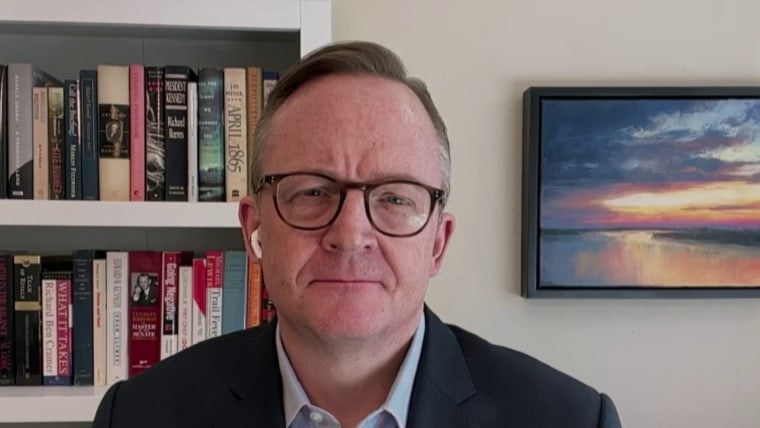To say that gas prices are climbing as Election Day approaches isn’t quite right: National averages show prices falling in recent weeks, following a late-summer climb, and consumers aren’t paying nearly as much at the pump as they were in June.
That said, it’s also true that prices are higher than they were a year ago at this time, and polling suggests it’s an issue on the minds of many voters. It’s not surprising that Republicans have made this one of the centerpieces of their midterm strategy.
It’s against this backdrop that there’s been a fair amount of commentary of late, trying to put things in perspective. A variety of prominent observers have argued that gas prices matter, but Americans would be wrong to overemphasize the issue given the nation’s other challenges.
The headline on Paul Krugman’s latest New York Times column, for example, reads, “Will Gas Prices Doom Democracy?” The column began:
Will the price of gasoline — a price that has very little to do with which party controls the government — nonetheless determine the outcome of the midterm elections, and quite possibly the fate of American democracy? I wish that were a silly question, but it isn’t.
The point of the piece was obvious: As a radicalized GOP grows more hostile toward democracy, the party may very well end up in a position of power because too many voters prioritized gas prices over their own system of government.
Krugman’s colleague at the Times, Charles M. Blow, had a related piece a few days earlier, with a headline that read, “The Battle Between Pocketbooks and Principles.” Blow, as part of a column that emphasized reproductive rights, asked, “What is the point of a cheaper tank of gas, if it must be had in a failed democracy that polices people’s most intimate choices about their own bodies?”
The Atlantic’s Tom Nichols raised a related point via Twitter over the weekend. “The United States is facing the greatest danger to its constitutional system since at least the 1950s, if not the 1850s, and millions of people are like: ‘Yeah, but gas, man,’” Nichols wrote.
Ann Telnaes, The Washington Post’s editorial cartoonist, even had a memorable image along these lines last week. The political cartoon showed a Republican voter in truck, having knocked down a pillar of democracy, declaring, “Yeah, but I’ll get cheaper gas.”
All of this commentary is compelling. With all that Americans are facing, to put gas prices — which, again, have fallen in recent weeks — at the top of the priority list, rewarding far-right reactionaries with political power because the last fill-up cost more than expected, is a tough decision to defend.
But there’s a related problem that’s often lost in the shuffle: Republicans might make big gains in the midterm elections, but they won’t lower gas prices.
In other words, it’s not enough to say the tradeoff between democracy and gas prices is misguided. It’s important to also take the next step and note that the tradeoff is illusory: Congress has no meaningful influence over gas prices or the energy marketplace.
The fictional man in Telnaes might be willing to sacrifice democracy for cheaper gas, but what he may not realize is that GOP candidates and officials won’t be able to deliver cheaper gas. The party isn’t even pretending to have a credible plan that would make a difference.
David Atkins had a good piece on this for the Washington Monthly last week, noting, “There is nothing Republicans can or will do to ‘fix’ this.”
It’s very much in line with how the GOP talks about inflation: Republicans aren’t making much of an effort to present realistic plans for making a problem better, but they’re hoping voters overlook pesky details and reward the GOP for talking about an issue that the public considers important.
Those planning to vote for Republicans, counting on them to somehow lower prices at the pump, are going to be disappointed.

